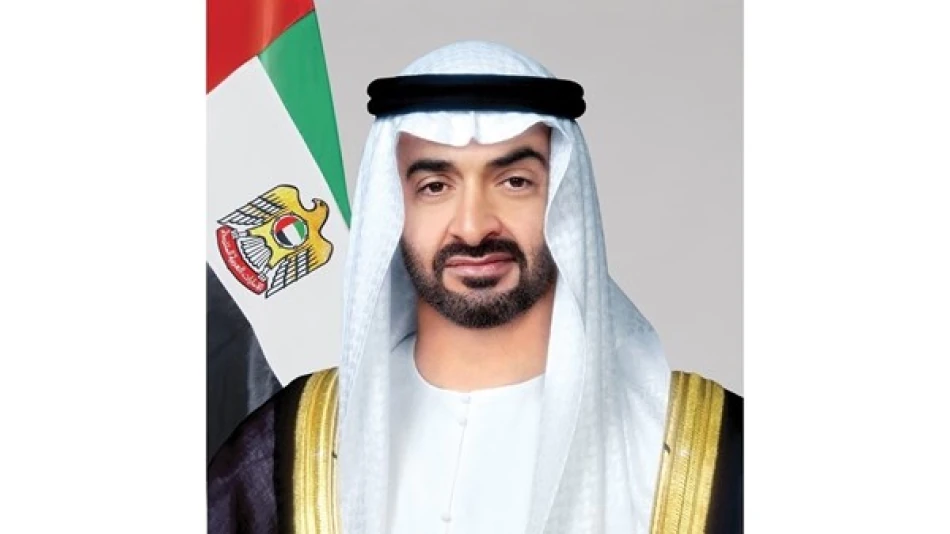
Azerbaijani President and UAE Leader Discuss Bilateral Ties in Karabakh Talks
UAE and Azerbaijan Deepen Strategic Partnership in Historic Karabakh Meeting
UAE President Sheikh Mohamed bin Zayed Al Nahyan and Azerbaijan President Ilham Aliyev have reinforced their countries' comprehensive economic partnership during a significant meeting in Karabakh, focusing on expanding cooperation across energy, food security, and renewable technologies. The high-level discussions underscore both nations' commitment to leveraging their July 2024 economic agreement as a foundation for deeper regional influence and sustainable development initiatives.
Economic Partnership Takes Center Stage
The meeting highlighted the transformative potential of the comprehensive economic partnership agreement signed between the UAE and Azerbaijan in July 2024. Sheikh Mohamed emphasized that this agreement represents a "qualitative leap" in bilateral economic relations, positioning both countries to achieve shared developmental objectives more effectively.
The partnership spans critical sectors including renewable energy, food security, and investment opportunities—areas where both nations have demonstrated significant expertise. The UAE's position as a regional financial hub and Azerbaijan's energy resources create natural synergies that could reshape economic dynamics in the Caucasus region.
Strategic Timing and Regional Context
The choice of Karabakh as the meeting venue carries particular significance, given the region's recent history and Azerbaijan's efforts to rebuild and develop the area following the 2020 conflict. This symbolizes Azerbaijan's confidence in its territorial integrity and development plans, while the UAE's engagement demonstrates its commitment to supporting regional stability through economic partnerships.
Energy and Sustainability Focus
Both leaders emphasized renewable energy cooperation, reflecting global trends toward sustainable development and energy transition. The UAE's ambitious clean energy initiatives, including its Net Zero 2050 strategy, align with Azerbaijan's efforts to diversify beyond traditional oil and gas exports.
This cooperation could position both countries as regional leaders in the energy transition, potentially attracting significant international investment and technological partnerships. For investors, this signals long-term opportunities in green infrastructure and renewable energy projects across both markets.
Cultural Diplomacy as Economic Foundation
The leaders' emphasis on cultural cooperation reflects a sophisticated approach to international relations, recognizing that sustainable economic partnerships require deeper cultural understanding and exchange. This cultural dimension distinguishes their partnership from purely transactional relationships and suggests long-term stability for business investments.
Regional Peace and Stability Implications
Sheikh Mohamed's expression of support for continued positive developments in the Azerbaijan-Armenia peace process demonstrates the UAE's growing role as a regional mediator and stability advocate. This position enhances the UAE's diplomatic influence while providing Azerbaijan with additional international backing for its regional policies.
The UAE's focus on Caucasus stability reflects its broader strategy of building partnerships across multiple regions, reducing dependence on any single geographic area while expanding its global influence through economic diplomacy.
Investment and Market Opportunities
For international investors and businesses, this partnership signals several emerging opportunities. The combination of UAE capital and expertise with Azerbaijan's natural resources and strategic location creates potential for infrastructure development, technology transfer, and market expansion into Central Asian markets.
The presence of high-level officials from both countries, including Sheikh Hamdan bin Mohamed bin Zayed Al Nahyan and multiple ministers, indicates serious governmental commitment to implementing concrete projects rather than symbolic agreements.
Looking Forward: Implementation Challenges and Prospects
While the partnership shows promise, successful implementation will depend on both countries' ability to translate diplomatic agreements into tangible economic projects. The UAE's track record in executing large-scale international partnerships, combined with Azerbaijan's experience in managing complex energy projects, suggests strong potential for success.
This partnership represents a model for how middle powers can leverage economic cooperation to enhance regional influence and achieve development objectives without relying solely on traditional great power relationships.
Most Viewed News

 Layla Al Mansoori
Layla Al Mansoori






